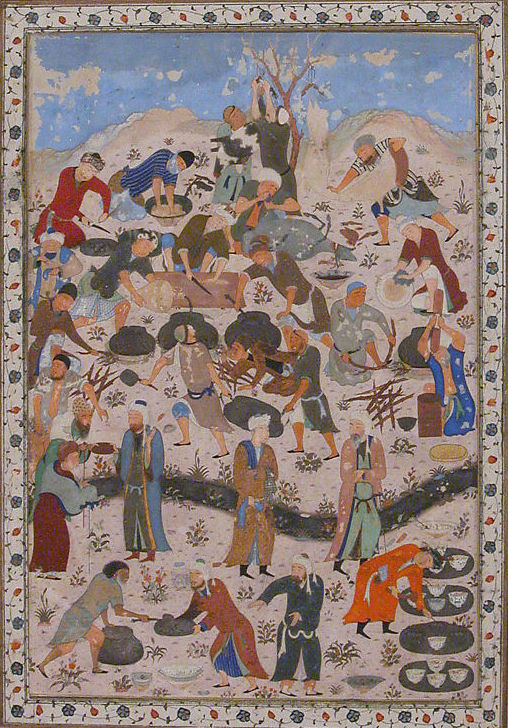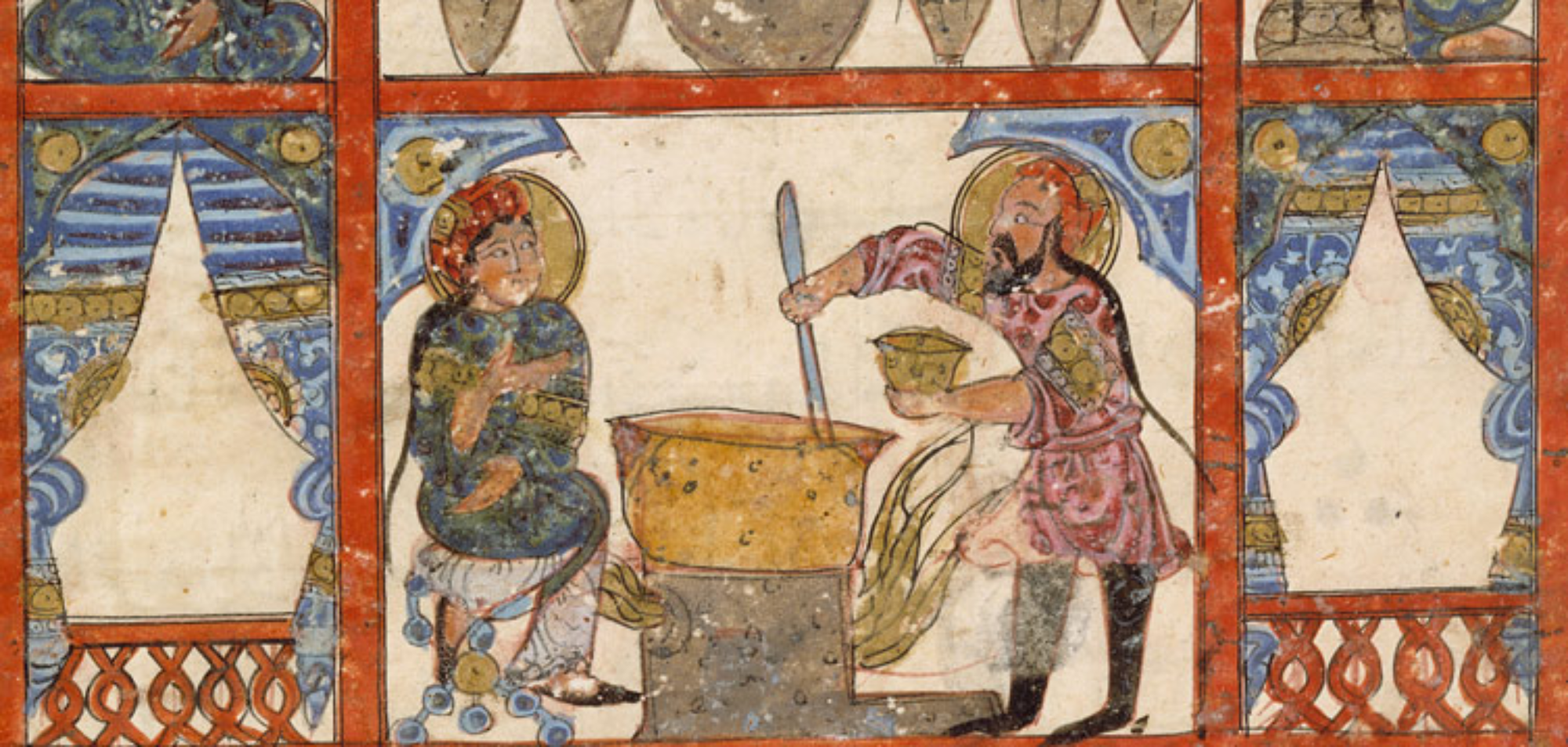It should not come as a surprise that a cuisine as technically complex as that of the medieval Arab world required a wide array of skills and tools. We’ll return to the latter in another post, but for now, let’s take a look at some of the advice offered in the cookery books about good culinary practice. There seems to have been a commonly agreed set of rules very early on as a number of cookery books start with a chapter on ‘useful things the cook should know’, which reveal quite a few overlaps across the centuries. Some things will sound very familiar, as they are still applied in modern kitchens, whilst others are perhaps more arcane.
In terms of ingredients, the principal advice was the fresher the better, particularly spices, and one should only pound the quantity that will be used so as not to weaken the potency of the spice. Nor should spices be crushed in a mortar that contains traces of other spices. Incidentally, the material of the mortar also matters; for meat, it should be made out of stone, but for spices, copper.
If you want food to cook quickly, add melon grounds; if it is chickpeas you’re making, throw a few mustard seeds into the pot. When it comes to the sequence of adding ingredients, salt should be added at the end, especially if you’re cooking grains, since it slows down their cooking time. The quantity of spices is linked to the type of dishes; al-Baghdādī (13th c.) suggests using large quantities in fried (dry) dishes, but only a limited amount in sour stews.
Cleanliness and the removal of bad odours are often mentioned, and authors frequently specify using a new pot. Al-Warrāq (10th c.), recommended washing pots both before and after coating the insides with clay. The Sultan’s Feast, for its part, tells us to wash cooking vessels with hot clay, saltwort, and dried roses, after which they should be wiped down with rubbed dried sour orange or citron leaves. Porcelain bowls should be fumigated with mastic and agarwood before putting food in them. And if you overcook the food and it starts smelling, one or two walnuts in the pot apparently does the trick as they absorb the bad odour. They can be used in the same way, to remove any bad smells from a cooking pot.

